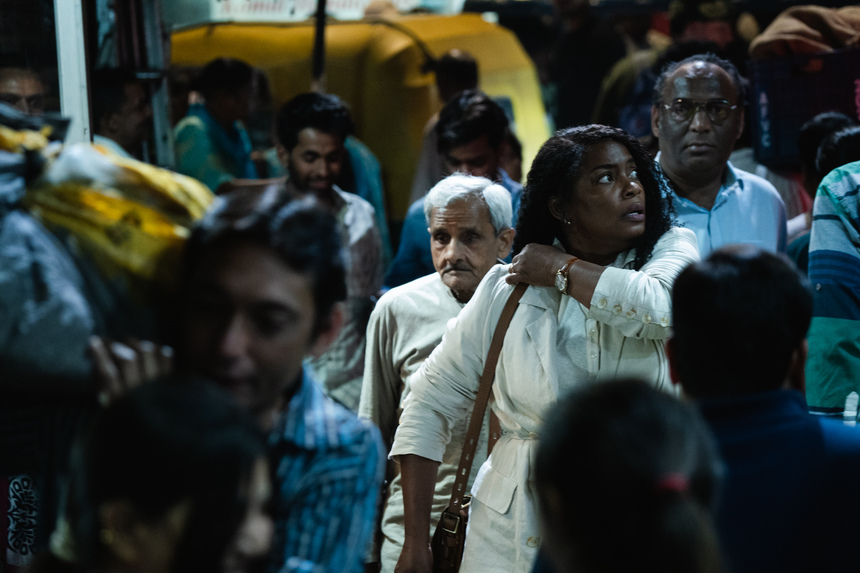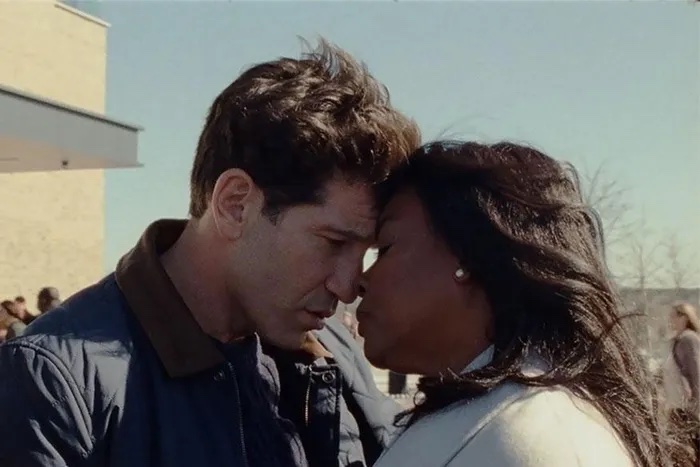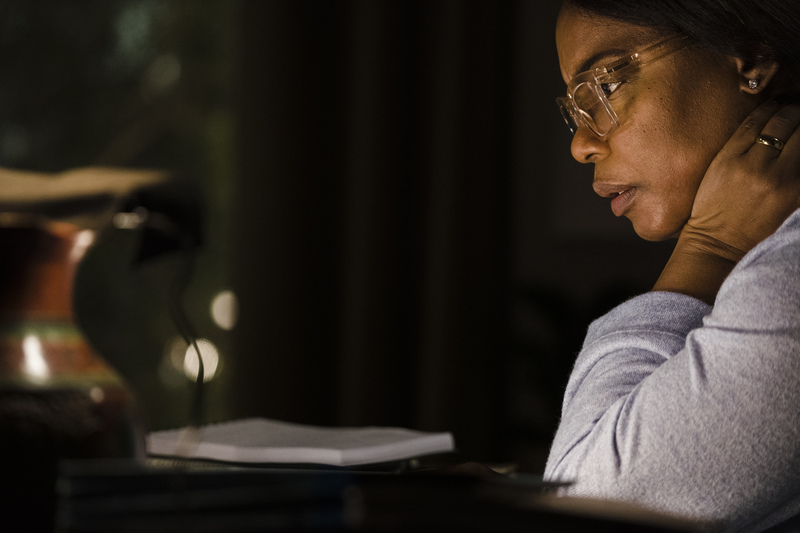ORIGIN Review: A Profoundly Humane and Radical Journey

While many misdefine and scoff at identity politics as 'distracting from presumed more important issues, in fact, identity is at the heart of politics. The people who decide what politics will be, the rules and laws we will follow, who benefits and who does not, make those decisions because of and geared towards identity.
Take the opening scene of Ava DuVernay's Origin: a young black man goes to a convenience store to get some snacks. It's a cool evening, so he puts up his hoodie, and he's talking to his girlfriend while he walks home. He notices a car following him, and he tells his girlfriend, who encourages him to try to find another route home. DuVernay stays with this young man, putting us almost literally in his shoes - walking beside him in step. It doesn't take long to realize this is Trayvon Martin, a young man about to be killed because of his identity, and remember that later, his killer would be acquitted, since the law does not protect those with Martin's identity.
DuVernay has spent much of her career dramatizing true stories - but more than that, she has worked at crafting a way to combine the personal and political. Since, when your identity dictates limitations on your existence, there is no way to separate the two. In the credits, Origin is indicated as inspired by the 2020 sociology book Caste: The Origin of Our Discontents. Isabel Wilkerson's exhaustive study of how abitrary systems of identification determine a human's position and worth in their society might not seem a natural fit for the kinds of films DuVernay makes, but here is where her experimentation pays off: to create a film that is both biography and video essay, that explores one person's creation and research of a thesis that will fumdamentally change how we understand discrimination.
We meet Isabel (Aunjanue Ellis-Taylor, in a brilliant performance) as she is just beginning the journey of her book - she hears the 911 recordings from the Martin case, and begins to think about what it means when one human life is valued less than another by virtue of their skin. But then she realizes it isn't just about skin, since this kind of valuation has happened, and continues to happen, in homogenous societies as well. Her research coincides with the loss, in the same year, of her husband Brett (Jon Berthnal) and her mother (Emily Yancy). DuVernay gives space to these losses, framing them in the context of Isabel's life and work - that these personal connections are part of what make us human and relatable, and how she finds these same connections between people of the past who fought against the caste systems in their societies.
Once you understand that Isabel is a character in this film, and this is her story as much as it is the book's story, it's not difficult to engage with the material. How could someone as smart and curious as Isabel separate herself from an idea as important as this? We pretend that we want neutraility in such investigations, but neutrality is impossible. Someone such as Isabel, a black woman who has learned to navigate in a white world, married to a white man, understands that at any moment, this culd be taken away from her simply because she is black, is in a unique position to discover and elaborate on this connective tissue that binds persecution of individuals with certain identities, around the world.
Duvernay allows us to take Isabel's journey alongside her; the dialogue is intelligent conversations that neither presume nor talk down to the audience. Even when Isabel's cousin asks her to speak more plainly about her thesis, she doesn't oversimplify. When we follow Isabel to her research trips in Germany and India, we see how Isabel uncovers the truth, the prejudice, the ignorance, and finally the connective tissue that will become her book.
DuVernay knows that the only way to understand this story, to understand both Isabel's journey through this research as well as what it means, is to put us in the history. The only way to understand the whole, is to understand the specific and individual. A young German man who fell in love with a Jewish woman in the 1930s and attempted to escape with her. A slave ship from the Middle Passage, and shows us the faces of those who were shackled, raped, sometimes tossed overboard. The life journey of Bhimrao Ramji Ambedkar, a member of the so-called 'untouchable' caste in India, who went on to write the country's constituion. These were individual humans. And we must face them, sit beside them, understand them beyond the page.
 DuVernay is weaving together what might seem like incongrous threads - Isabel's personal grief, experienced at the same time as her insightful research and game-changing discovery. But in intercutting between the biography and the political, between these personal stories of Isabel's life, and the personal stories she finds in her research, we see these threads not as individual but part of the larger tapestry of human history. There is not whole without the individual, and vice versa. These edits are how are our own lives are lived.
DuVernay is weaving together what might seem like incongrous threads - Isabel's personal grief, experienced at the same time as her insightful research and game-changing discovery. But in intercutting between the biography and the political, between these personal stories of Isabel's life, and the personal stories she finds in her research, we see these threads not as individual but part of the larger tapestry of human history. There is not whole without the individual, and vice versa. These edits are how are our own lives are lived.
DuVernay's strength as a filmmaker has always been her ability to weave together these kinds of threads. There are some epic scenes in this film, such as a recreation of a Nazi rally and book burning in 1930s Berlin, a scene filmed in the location where these book burnings took place; but there are smaller moments just as profound, when Isabel starts to coalesce her theory at a family picnic, in conversation with her cousin. The 16mm cinematography by Matthew J. Lloyd, along with editing by Spencer Averick, bring each part of this story into a feeling of home: that is to say, there is no way to know these stories except as our own.
DuVernay has never shied away from stories that are intelligent, intimate, and complex. Origin is her best work since Selma in weaving together these ideas into a statement that speaks as much to our minds as it does our hearts, understand how we are all comnnected in the best and worst ways.
Origin will be in theatres in the United States on January 19th, and in Canada on January 26th.








